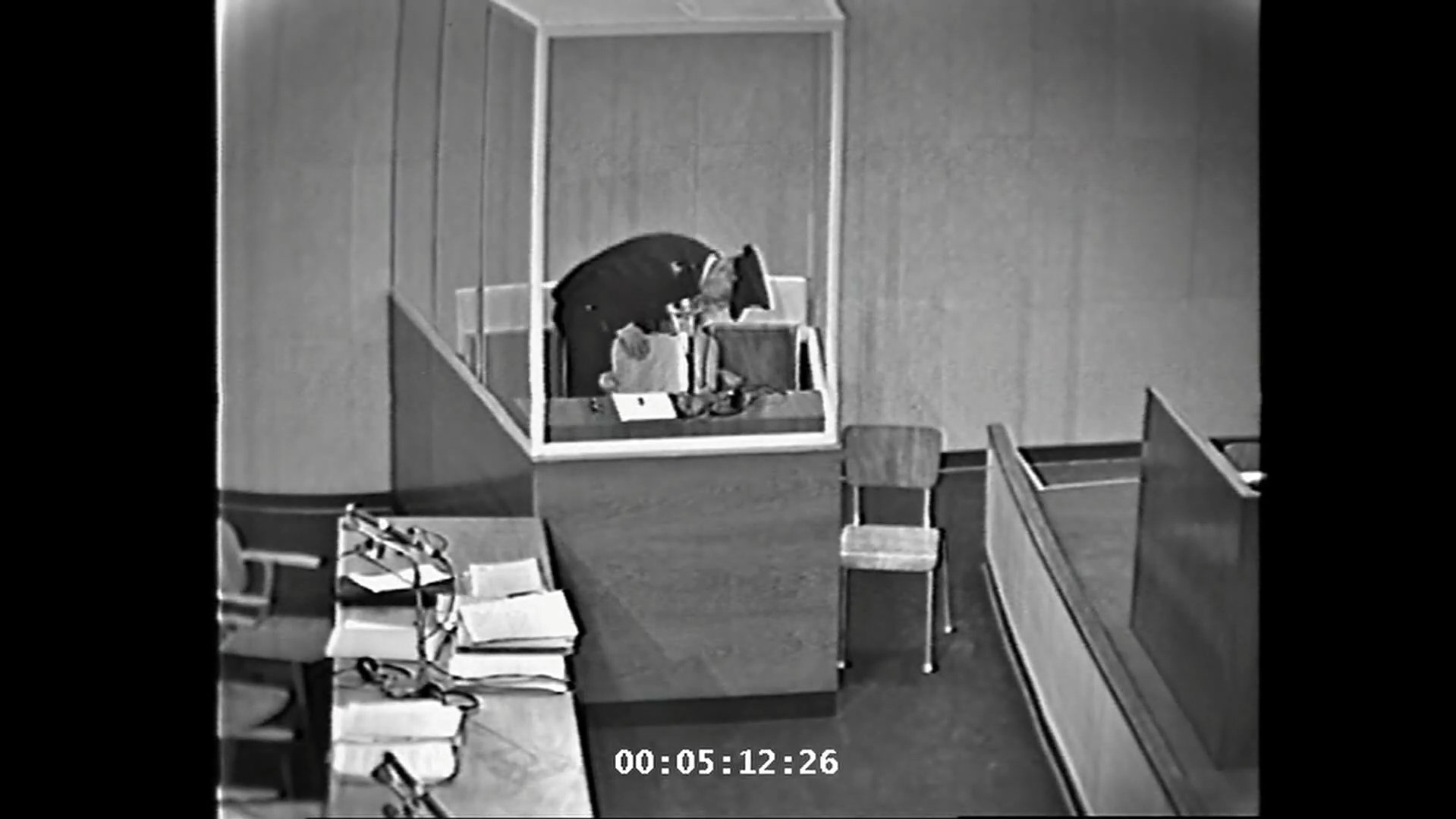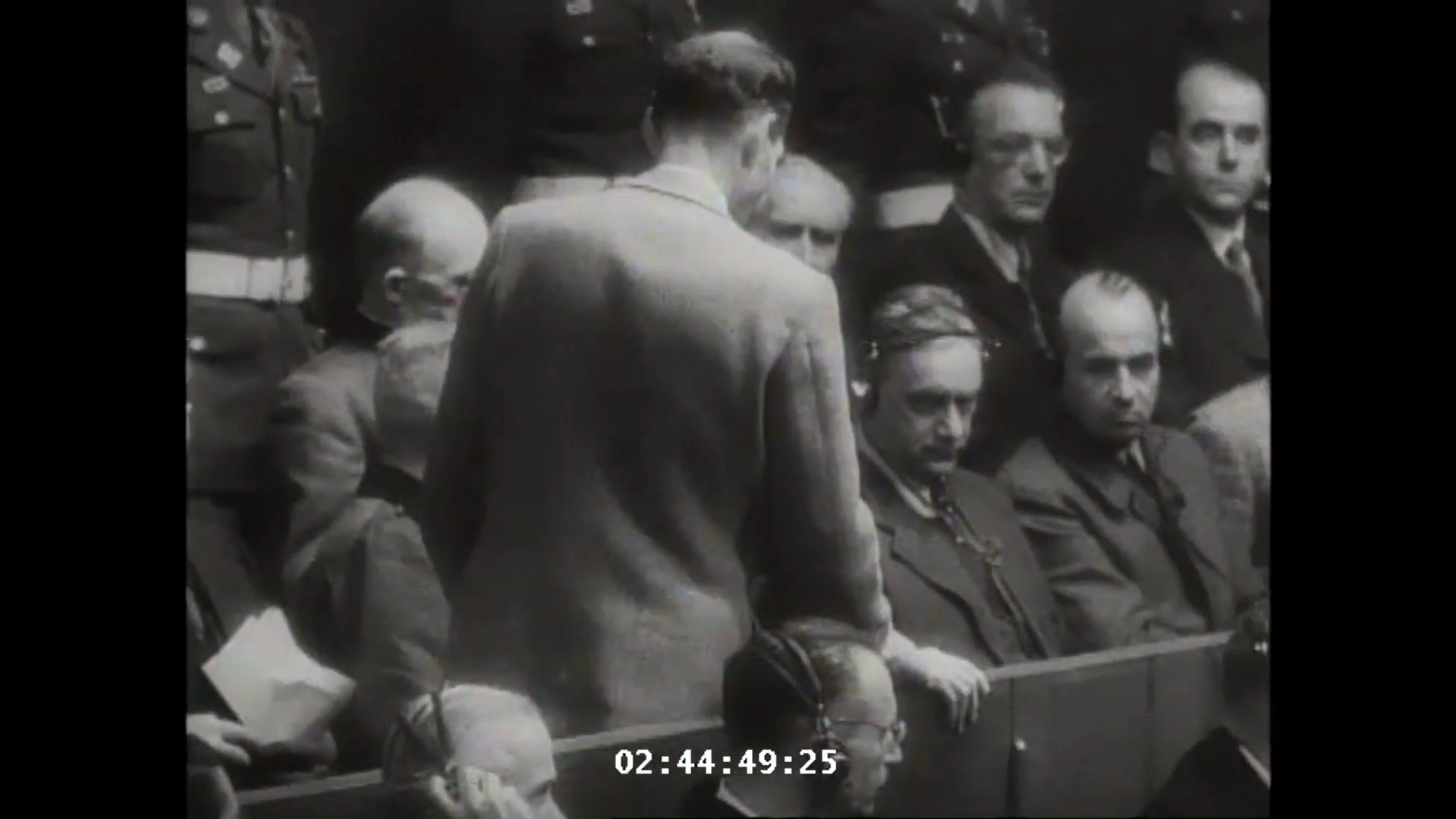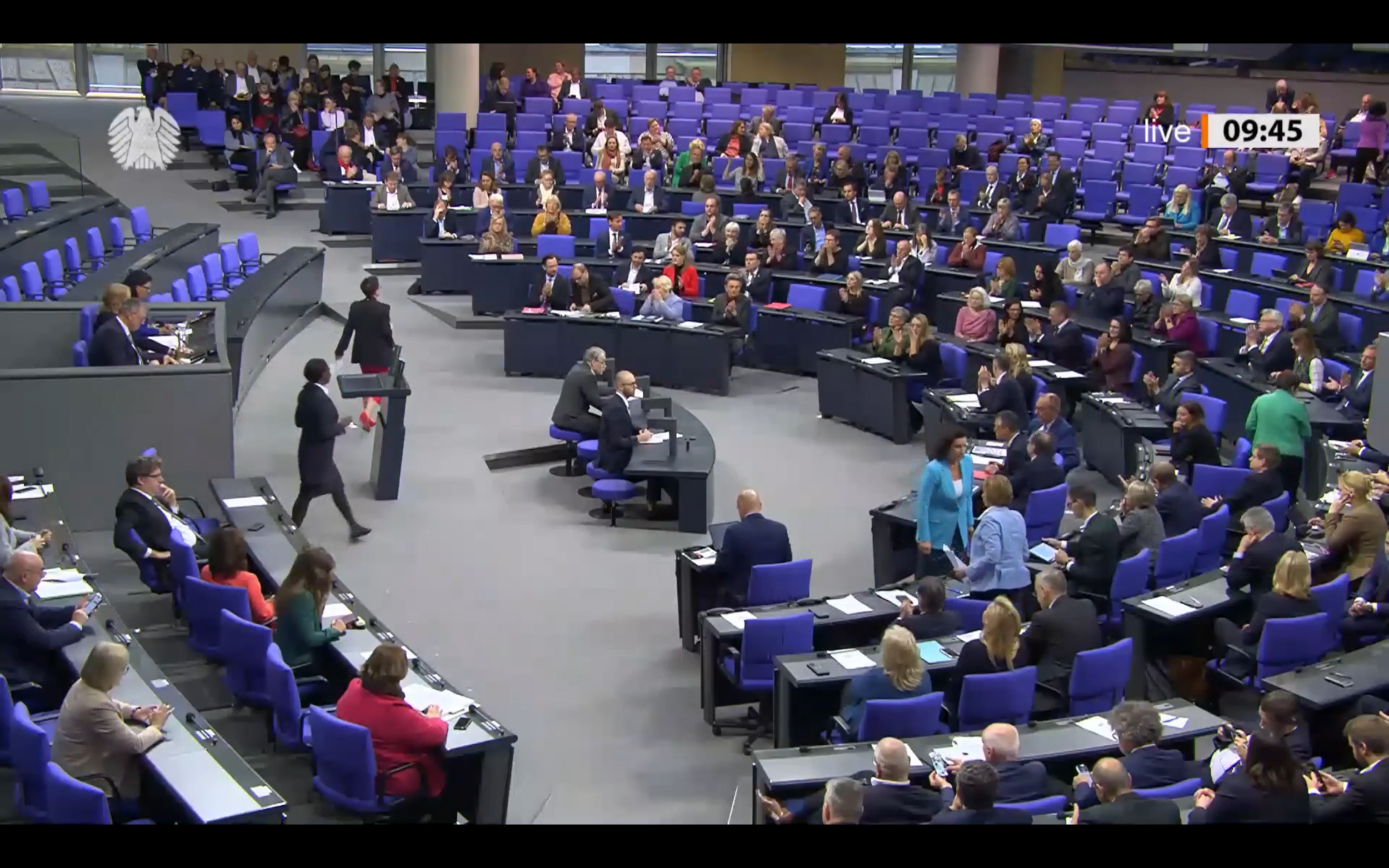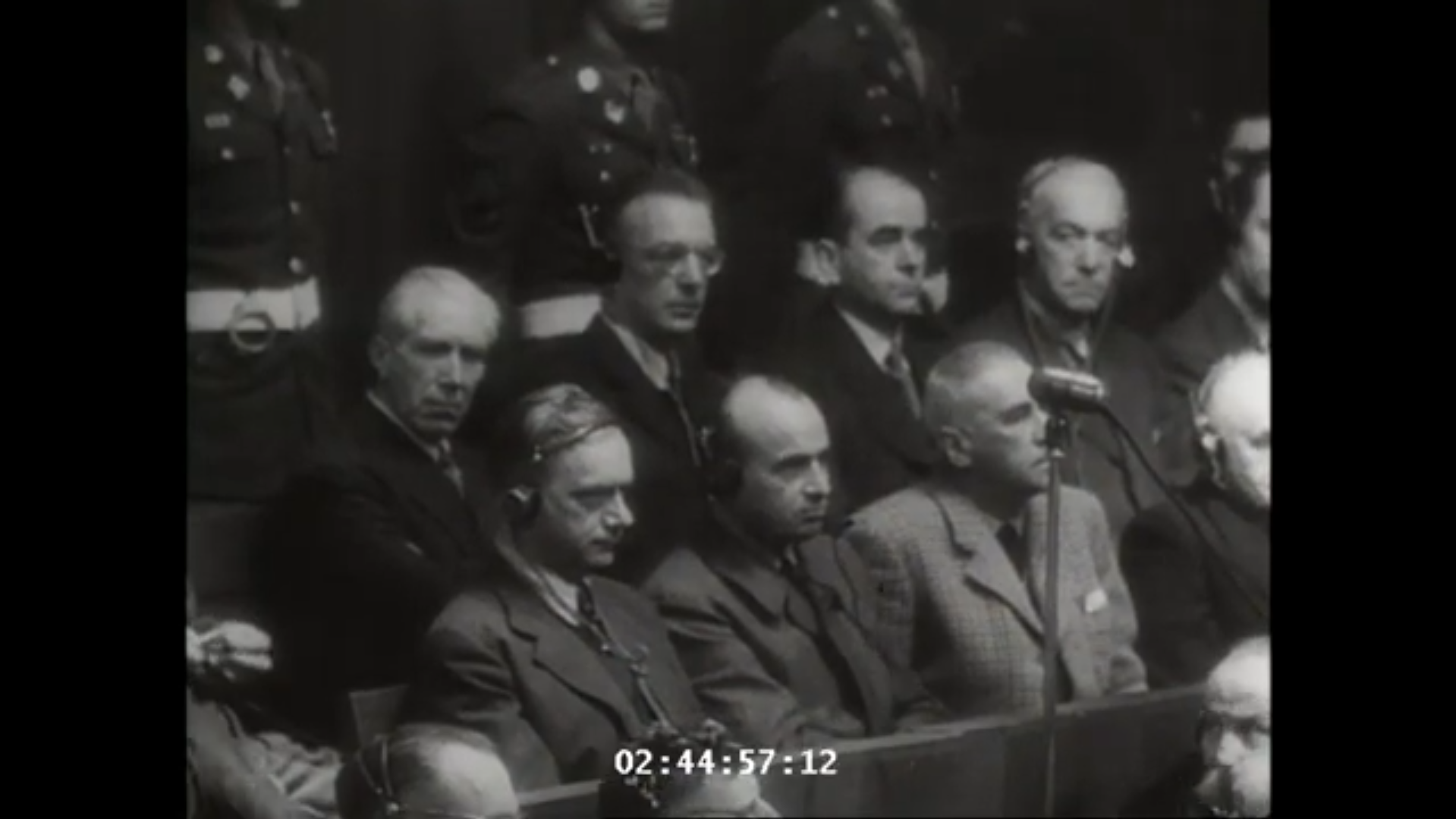







Untitled 2025
Four channel Videoinstallation:
Entrance Projection: Eichmanns Box, Full HD, no sound, 4.11min loop
Entrance Televison: Not Guilty, Full HD, Mono, 3.32min loop
Central Projection: Rolf, Full HD, Mono, 3.15min loop
Corner Television: Can’t bear her words, 49.58min loop
Supported by: DAAD - The German Academic Exchange Service, KIT - Kunsthalle Düsseldorf.
Silent Communion, Sacred Stigma
Transparent and skeletal. Cages without capture. A scaffolding of tacit maneuvers. Jan-Niklas Thape’s Untitled are structures not of enclosure, but suggestion - circuits of attention, of conduct, and of crime - wrestling with the German culture of remembrance.
On approaching a terrain of wooden battens, indicated rooms and ascetic chairs, one is faced with Eichmann’s Box. Video-projected scenes of the NSDAP official and Schutzstaffel officer’s well-documented 1961 Jerusalem trial. The two-minute loop traces labouring construction workers and the court’s empty interior as it presents us with a room within the room: the glass booth through which Adolf Eichmann will be fixed and framed during the trial. From where he will become the first televised personification of pure evil. A cage-like architecture built to protect a perpetrator of unimaginable mass criminality from attacks and attempts of assasination. A guard is seen entering the box. Setting the scene with papers and pens, he then sits down and waits. And so do we. In Thape’s extract of the Jerusalem trial, it is Eichmann’s absence and a quiet anticipation that confronts us.
Led past another figuration of battens, we are standing at the edge of a gallery and the installation’s second narrative point of orientation. It’s November 1945 and names are being called. One by one they rise, sliding and squeezing past each other, moving up towards the microphone. Mute echoes the nazi defendants' choir of innocence as they plead: “Not guilty”. Placing a hand on Thape’s extended railing has one displaced beside them, and here, in a state of mirrored judgement, the words of Ugandan academic Mahmood Mamdani come to mind with a thunderous jolt: Who should be held responsible for nazism, the nation or the state? Nazi leaders or the German people? We will return to Mamdani shortly.
“Do you believe that your father was responsible for this?”, a man asks from the back. Posed by the TV host Phil Donahue in a 1986 talk show, the question is directed to a weary-looking individual on his right, Rolf Mengele, the son of Josef Mengele. The American 80s audience listens with eyes unsettled and mouth in open horror to Donahue’s recounting from the at the time newly published Mengele: The Complete Story. Thape’s scaffolded extension of theatres of judgement is narrow here. The large American talk show studio, seen through a haze of VHS-saturation, has been turned into a dimly lit and cramped viewing room populated by rows of chairs. Placed at a distance from each other, two of the chairs have had plates fitted for seating, while the rest holds but air and absence. They invite us to a silent communion with an absent audience and imagined community dispersed throughout the exhibition. Critically, the indicated rooms and ascetic chairs become structures of suggestion that at once actualize and abandon movements, positions and gazes. Acts of witnessing, spectating, participating and resisting are staged and disintegrated toward something beyond a dichotomy of victims and perpetrators.
The Australian scholar of genocide Dirk Moses has described the debates in German memory culture during the 1980s as the emergence of a consolidation around the Holocaust as a singular, unparalleled civilizational rupture. To continue to resemble a “normal” Western country, Germany needed to think of itself as abnormal, that is, as stigmatized. Being a “good” post-Holocaust subject meant integrating this belief into both self-understanding and international image. What emerged from the 1980s, according to Moses, who faced sharp criticism from German intellectuals for his position, was a new catechism: a redemptive narrative in which the sacrifice of Jews in the Holocaust by the Nazis became the premise for the legitimacy of the Federal Republic. This narrative, he argued, treated the Holocaust as a “sacred trauma that cannot be contaminated by profane ones” - the suffering of non-Jewish victims or other genocide - which would undermine its sacrificial function.
Moving towards Untitled’s fourth and final narrative node, one is met with bit-crushed bursts of digitally contorted speech and wrenching vowels. Unbearable Words sees the AfDs Beatrix von Storch wave in undulating stutters during a speech given at the Bundestag’s 2024 debate Never again is now - protect, preserve and strengthen Jewish life in Germany. Slowed down to a creeping pace, intelligibility and sense unbinds. Wading through thick mud is the process of connecting phonemes to words, and words to sentences - quite the opposite of what von Storch’s speech really sought to be. In an attempt to end all so-called great illusions, it targeted the hypocrisy of the political left, “imported Muslim anti-Semitism”, Merkel’s open borders policy, and an “obsessive hatred of the state of Israel”. The Jewish state that, according to von Storch, represents everything that Europe once was: “a strong state, self-confidently national, religious, ready to protect its cultural identity and defend its borders”.
“Was Germany ever denazified?”. This question, lodged at the very heart of the installation, brings us back to writer Mahmood Mamdani. In his Neither Settler nor Native, Mamdani describes the American consensus as being that responsibility for nazism lay with the German people. At Nuremberg and after, millions were considered culpable, yet nazism was never probed as a political project. In debates among German left-intellectuals at the same time, the answer was that nazism was a nation-state project: a project of both the Nazi state and the folk nation to eradicate the state territory of national minorities like Jews and Roma - for them, nazism was, above all, a political project.
Untitled is a testament to the fact that Germany never was denazified. Tensions are still present andGermany’s wrestling with its regeneration of collective life still continues. Time will tell what becomes of Germany’s culture of remembrance, its close relation to the state of Israel and the now unfolding genocidal onslaught in Gaza.
by Jacob Schill